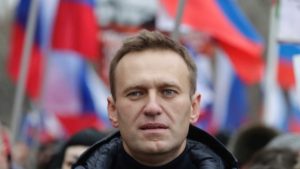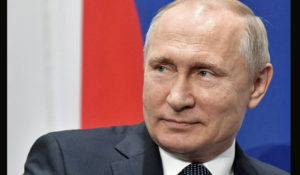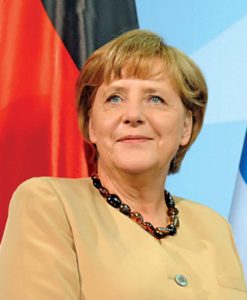International turmoil grows over poisoning of Russia opposition leader Alexei Navalny

In the last two weeks, international turmoil has increased over the poisoning of Russian opposition leader, Alexei Navalny. On August 20, 2020, Navalny, a robust critic of Russian President Vladimir Putin, was on a flight to Siberia when he fell ill to what his team believed was a poisoning. After a skirmish between Russian doctors and Berlin representatives, Navalny was flown to a Berlin hospital. Speculation that Putin was behind Navalny’s poisoning existed upon the announcement of Navalny’s critical condition. German Chancellor Angela Merkel confirmed on Wednesday, September 2, 2020 that Navalny was the victim of a Novichok nerve agent attack. Novichok is a military-grade nerve agent that was developed by the Soviet Union prior to its collapse in 1991. Unlike other nerve agents, Novichok is very rare, so it is largely believed in the international community that the Russian state had to have carried out the attack on Navalny. Many world leaders are calling for Russia to be punished for its actions, but there is dispute over how to punish Russia.
What is Novichok and why does it matter?
Novichok is a class of military-grade nerve agents developed in the Soviet Union throughout the 1970-80s. According to the BBC, Novichok agents are several times more dangerous than other agents such as RX, and it is harder to detect. Novichok agents were designed to go undetected as Russia’s stockpile of

chemical weapons was diminished in the 1990s. There is disagreement in the science community over how potent, or long lasting, Novichok agents are. Novichok agents react similar to other nerve agents by blocking messages from nerves to muscles; and this causes a collapse in many body systems.
Novichok plays a key role in linking Navalny’s poisoning to Russia. Since Novichok was secretly created by the Soviet Union, it is believed that Russia possesses
the deadly agent. Novichok is synthetically created in a lab, so it is more difficult to acquire than other nerve agents. In 2018, Russia used a Novichok agent on former spy, Sergei Skirpal and his daughter in England. There are many similarities between the Skirpals’ poisoning and Navalny’s poisoning. Navalny’s spokespeople linked the use of Novichok to other Russian plots too.
How have world leaders responded to Russia’s poisoning of Navalny?
The European Union is demanding a transparent investigation of Russia.
NATO is calling for an international response to Navalny’s poisoning. NATO condemned Russia, and wants to investigate its breach of the Chemical Weapons Convention (CWC) in order to deliver justice.
The United States National Security Council (NSC) has referred to Russia’s actions as “completely reprehensible”. The NSC said it will work with its allies to investigate the incident in its demand for justice.
Boris Johsnon, Prime Minister (PM) of the United Kingdom, described Navalny’s poisoning as “outrageous”. On Twitter, the PM claimed that the United Kingdom would work with others to ensure that justice is delivered.

German Chancellor Merkel has condemned Russia for its involvement in Navalny’s poisoning as well.
While most of the world can agree that justice must be served to those involved with Navalny’s poisoning, there is disagreement over how severe Russia should be punished for its involvement.
Controversy over Germany and Russia’s Nord Stream 2
Nord Stream 2 is a 764-mile pipeline that is being built under the Baltic Sea. The Russian energy provider building the pipelines, Gazprom, is controlled by the Kremlin. The purpose of Nord Stream 2 is to double the amount of natural gas flowing from Russia to Germany.
Chancellor Merkel has supported Nord Storm 2, and she has done her best to de-politicize the pipeline since the project began. Merkel instead chooses to refer to Nord Stream 2 as an “economic project”. Nord Storm 2 has been critiqued by many in Europe and the United States. The pipeline would give Russia significant leverage over Germany, and Russia’s economy would benefit greatly from the deal.
Although she had the support of her coalition, the Social Democrats, initially, Chancellor Merkel is struggling to defend her decision in keeping the 94% completed Nord Storm 2 deal with Russia following the details of Navalny’s poisoning. Many critics of Chancellor Merkel find it hypocritical that Germany has condemned Russia as it is conducting business with Russia. Multiple top-ranking officials within Germany have called for the deal to be cut-off with Russia as a form of “tough language”.
Chancellor Merkel did not change her position on Nord Stream 2 until September 6, 2020. Speaking on behalf of Germany, Foreign Minister Heiko Maas said, Russia’s level of compliance in the Navalny investigation would determine if Germany imposed sanctions against Russia or not. These sanctions could potentially include Nord Stream 2.
What happens next?
Most of the world can agree that Russia must be investigated to determine who was involved with the poisoning of Alexei Navalny. There has been some skepticism that an investigation would be successful considering the attack happened on Russia soil, but it appears that world leaders and organizations will move forward anyway. On September 7, 2020, Germany announced that Navalny was awake and responding to verbal stimuli, but it is too soon to tell the full extent of how the Novichok agent effected him.



